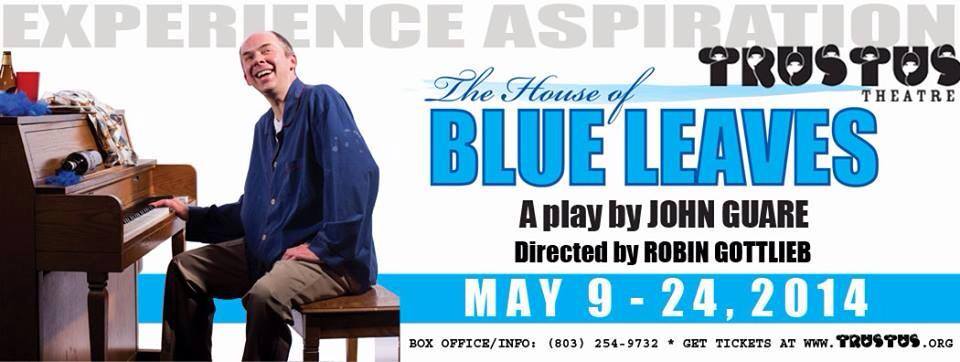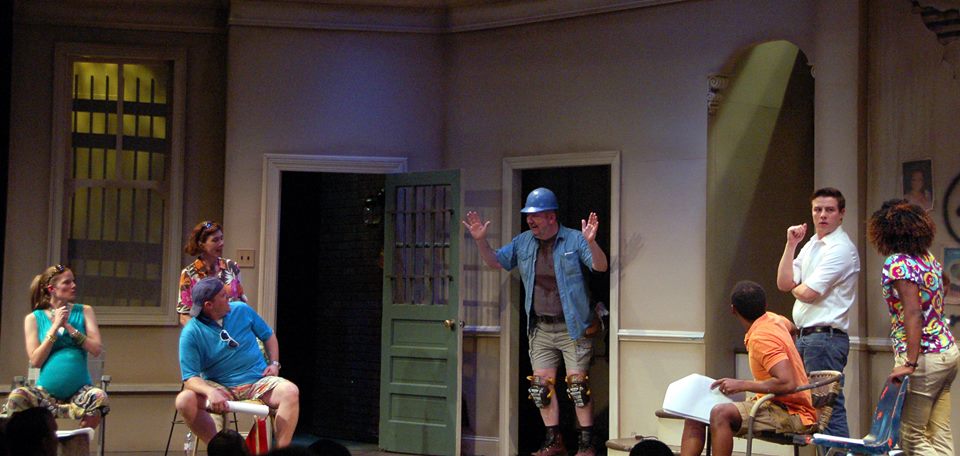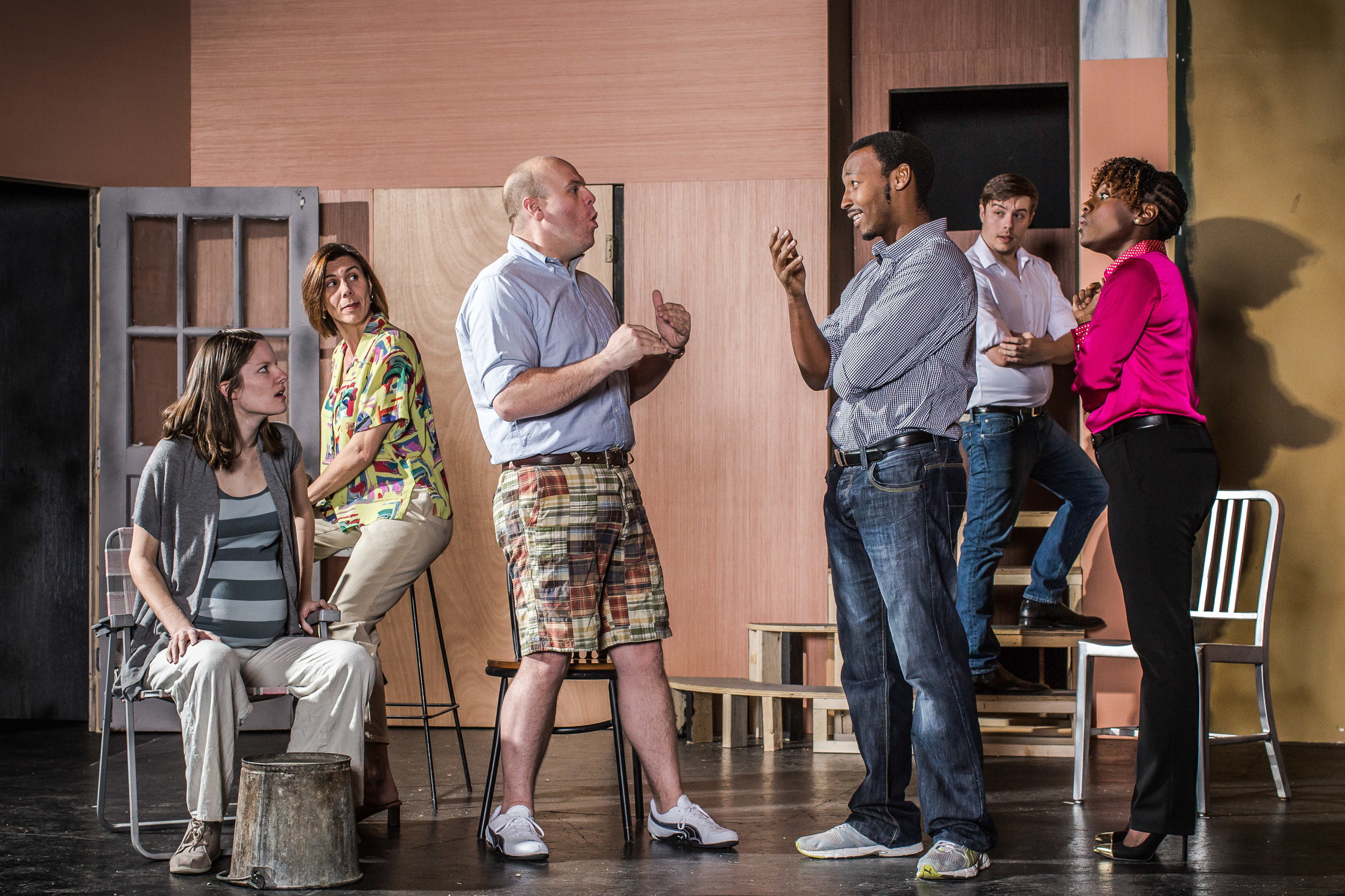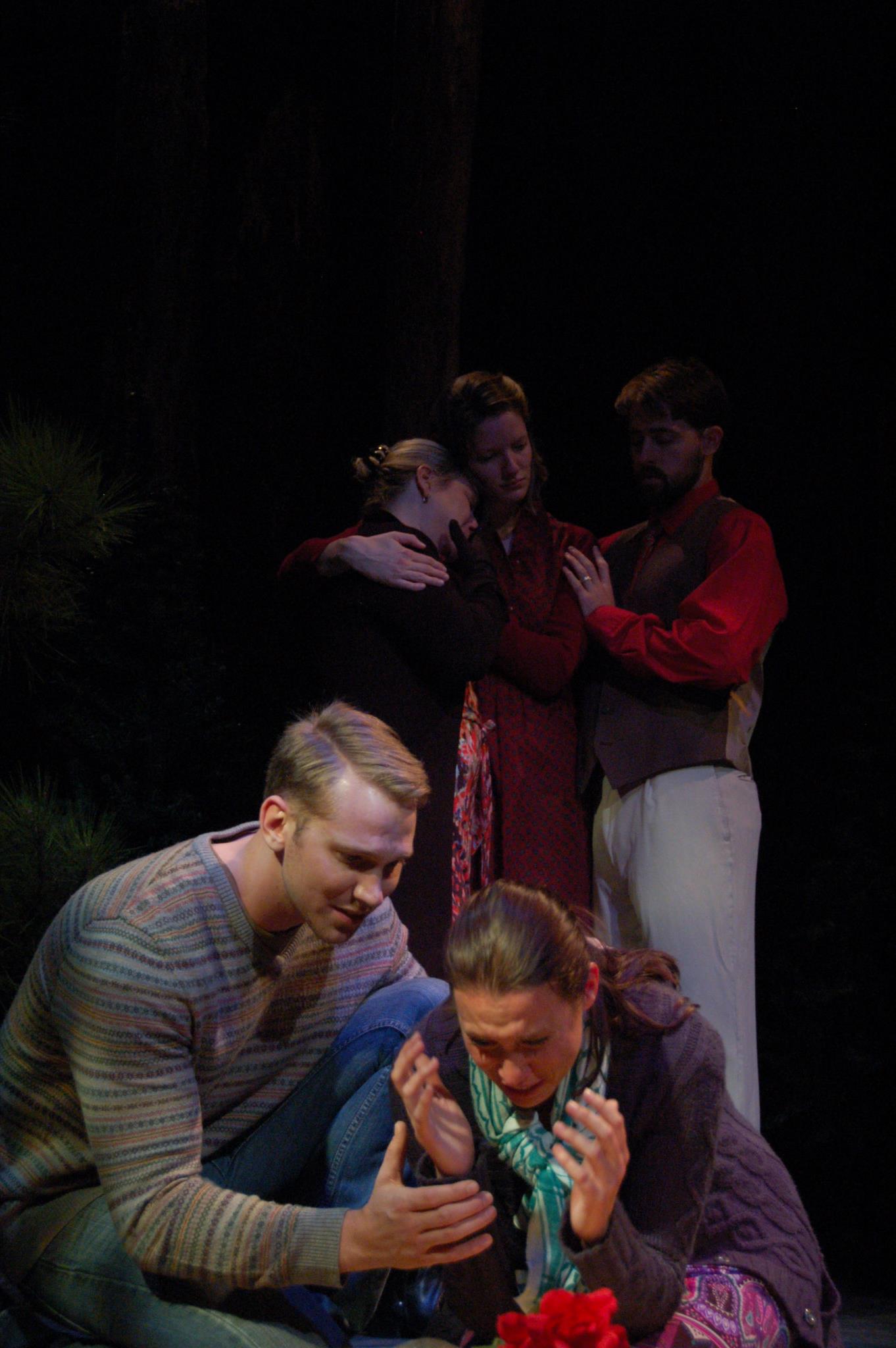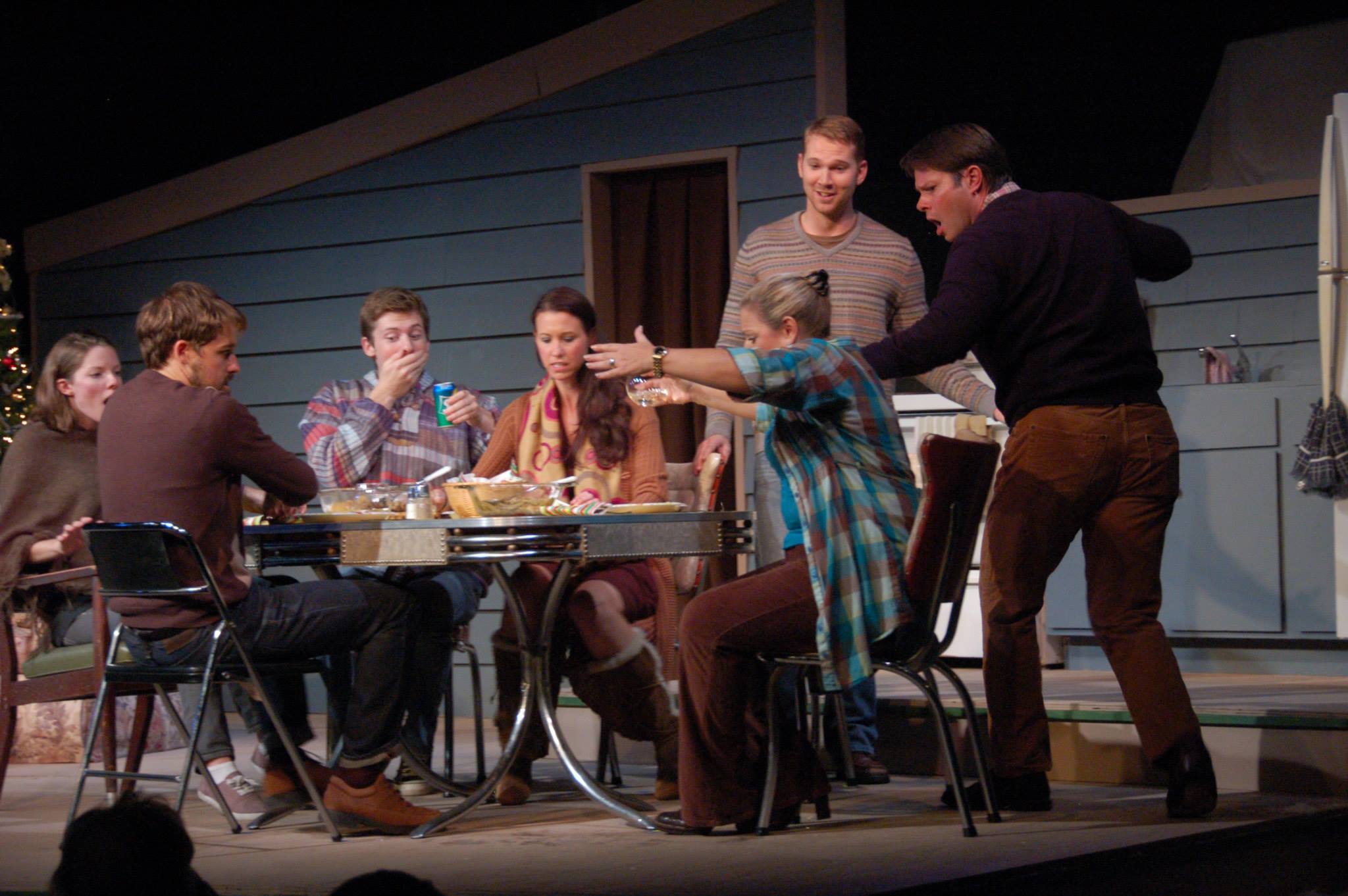
Pine, the new play by Eugenie Carabatsos and winner of the Trustus Playwrights’ Festival will open on the Thigpen Main Stage at Trustus Theatre this Friday, August 2, at 8 PM, and will run through the following Saturday, August 10. The author graciously agreed to share a few thoughts with Jasper, prior to her first visit to Columbia this weekend to see the world professional premiere of her new play.
Jasper: What inspired you to become involved in theatre? Is that your main focus as a writer?
Carabatsos: My primary interest and passion is drama, though I would love to also be a novelist and perhaps create my own television show someday. As far back as I can remember, I have loved theater. My parents are theater-lovers, so they would take me to see plays and musicals frequently as a child. I remember I made my parents take me to see a community theater production of Annie Get Your Gun three times in one weekend. I always loved going to plays and telling stories, but it wasn't until my senior year of high school when I combined my love of storytelling and my love of plays and wrote my first play for my senior project. After seeing my play read aloud by actors, I was hooked. I have not done any acting, but I have self-produced a few of my plays in festivals, which is a fun, challenging experience that I like very much.
Jasper: Where did you grow up?
Carabatsos: I am from Bridgehampton, NY, which is a small town on the eastern end of Long Island. The area I live in is not unlike New England, so it was a very nice, easy transition to living in Middletown, CT for college.
Jasper: Your alma mater, Wesleyan, is a very distinguished liberal arts college. Did you study theatre or writing there?
Carabatsos: Wesleyan does have a wonderful theater and film program, but I actually was an English major, so I didn't get involved in the theater scene at all in college. For me, the best way to learn how to write well is to read well-written books, plays, and essays, so I definitely feel as though I gleaned a lot from my education creatively, even though I wasn't involved in the theater program there.
Jasper: You wrote the first draft of Pine while attending an artist-in-residence program in the Catskills. Was there anything in particular that inspired this story?
Carabatsos: The play isn't based on personal experience. I was thinking about what it would be like for a young widow, and what her relationship would be with her "ex's" family. I thought that relationship might be an interesting idea for a play. Then I thought, well what if the dead spouse was still around, but no one knew it? And that was the jumping off point. Then when I was in the Catskills, I thought that would be a perfect setting for the play.
Jasper: Is there a significance to the title?
Carabatsos: The title refers both to the idea of longing, and also to the smell that connects the family to each other and especially to the father.
Jasper: Is comedy a new medium for you? And do you like to work with any recurring themes in your work?
Carabatsos: Yes - when I wrote Pine, I hadn't dabbled in comedy at all. I think the most recurring themes in my work are death, memory, and love. In terms of writing style, I am very interested in trying out different structures. Pine has a pretty straightforward structure, but most of my other work plays a lot with structure.
Jasper: Are you a full-time author?
Carabatsos: Making a living off of writing has been a goal since I decided I wanted to be a writer. I hope to one day reach it! I work both as a private tutor and academic tutor for a tutoring company that specializes in clinically informed tutoring. I have also previously worked for an online university as an adjunct teacher. I actually really enjoy my tutoring work, and I am passionate about education, but being a writer full-time is definitely the end goal.
Jasper: Part of the Trustus Playwrights' Festival includes a staged reading the year before the actual premiere, allowing for feedback. What was that process like?
Carabatsos: I did not attend the reading, but I had a wonderful conversation with the director afterwards, and we discussed the feedback the play received. It was a really helpful conversation. The play has been revised since that first reading. The core of the play is the same, but there are some things that I expanded upon or made stronger connections to. For example, I gave a lot more information about the father, so that the ending had more weight. I also included a scene with Rita in the trees and allowed her to have a moment with her daughter, Julie.
Jasper: How did you discover Trustus, and are you familiar with the Midlands area?
Carabatsos: I learned about Trustus through a posting on pwcenter.org, which is the website I use to find all of my play submission opportunities. I have driven through South Carolina on a roadtrip, but haven't spent any significant time there (or in the South in general). I am really looking forward to it!
............................

From press material:
Eugenie Carabatsos has written eight plays, all of which have been produced in professional or festival settings. After Eternity (Winner of the Venus Theatre Festival), The Brink, and Stalled have been produced in festivals including the Alumnae Theatre New Ideas Festival (Toronto, ON), the Midwinter Madness Festival (New York, NY), the Venus Theatre Festival (New York, NY), and Manhattan Repertory Theatre Festival (New York, NY). Her ten-minute plays have been produced by the Playwrights' Round Table (Orlando, FL), the Short + Sweet Festival (Sydney, Australia), the Edward Hopper House (Nyack, NY), Manhattan Repertory Theatre, The Secret Theatre (Queens, NY), Silver Spring Stage (Silver Spring, MD), the Pan Theater (Oakland, CA), the Complete Theatre (New York, NY), and Love Creek Productions (New York, NY). In Their Glory has received staged readings as part of Alumnae Theatre’s New Ideas Festival in Toronto, and, by the Truffle Theatre Company in Brooklyn. A one-act version of the play won the Scholastic Arts and Writing Award for Best Play in 2006. She graduated from Wesleyan University in 2010 with a BA in English.
The Trustus Playwrights’ Festival is considered by various publications to be one of the best in the nation. Not only do winning scripts garner a professional reading, but they also receive a full production on the Trustus Thigpen Main Stage. Past winners of this festival including Jon Tuttle, Stephen Belber, and Andrea Lepico have gone on to have their scripts published and performed all over the nation. Past winner David Lindsay-Abaire was even awarded the coveted Pulitzer Prize for Drama and the Tony Award later in his career. Now NYC playwright Eugenie Carabatsos joins the fine company of Playwrights’ Festival winners as her play Pine makes its professional debut right here in the Capital City.
Pine, under the direction of Trustus Artistic Director Dewey Scott-Wiley, is a ghost story – with humor and a tremendous amount of heart. As the lights come up, audiences are introduced to the White family. Gathering for the Christmas holidays, we realize that older son Colin White seems to go throughout the house unnoticed. Further exposition reveals that Colin is actually a ghost following a fatal car accident years earlier. Colin constantly tries to avoid his overbearing mother and to communicate with his younger brother Teddy, but Teddy can’t see him…or can he? The plot thickens as Colin’s ex-girlfriend shows up to the White home for a holiday visit with her new boyfriend. The Whites' Christmas takes many turns as Colin’s memory and spectral presence make us wonder if Colin’s family is beyond his reach.
Sarah Hammond, a Columbia native who is now a successful playwright in NYC, is the Trustus Literary Manager and oversees the festival submissions. “We went electronic with our competition last year,” said Hammond. “This year, for the first time ever, we also eliminated the submission fee for playwrights, which increased the number of submissions substantially. We got 400 submissions this year from all over the country.” Submissions consist of playwright bios, a play synopsis, and a 10-page script sample which Hammond has to peruse thoroughly. She then asks for full plays from 25-40 of the playwrights submitting. “When asking for those full scripts, we look first for voices that leap off the page,” says Hammond “Is it theater? Does it feel live? Some dialogue just sings, and that's apparent in a ten-page sample. There's a rhythm - an energy - that comes from a playwright's gut. While we don't have one aesthetic for the new work at Trustus, we do tend to favor scripts with a very strong current of personal truth.” After the full scripts have been read, the top five make their way to Columbia, SC where the Trustus Artistic Director chooses the winner. Obviously, Ms. Carabatsos’ Pine found itself in the winner’s circle in 2012.
Director Dewey Scott-Wiley has assembled a talented cast to bring Carabatsos’ characters to life for the first time. Long-time Trustus Company member Becky Hunter (Palace of the Moorish Kings) takes the stage as Rita, the matriarch of the White family. Hunter Bolton (Love! Valour! Compassion!) makes his Trustus debut as Colin, the ghost. Playing Teddy and Julie, Colin’s siblings, are Cory Alpert and Rachel Kuhnle respectively. Playing Julie’s husband is USC MFA in Acting candidate Josiah Lauberstein (Boeing Boeing). Portraying Colin’s ex-girlfriend Rachel is Jennifer Moody Sanchez (My First Time), and with her is Harrison Saunders (Red) as Rachel’s new boyfriend and soon-to-be fiancé.
Pine makes its premiere on the Trustus Thigpen Main Stage on Friday, August 2nd at 8:00pm and runs through August 10th, 2013. Main Stage shows start at 8:00 pm Thursdays through Saturdays, and Sunday matinees are at 3:00pm. Tickets are $22.00 for adults, $20.00 for military and seniors, and $15.00 for students. Half-price Student Rush-Tickets are available 15 minutes prior to curtain.
Trustus Theatre is located at 520 Lady Street, behind the Gervais St. Publix. Parking isavailable on Lady St. and on Pulaski St. The Main Stage entrance is located on the Publix side of the building. For more information or reservations call the box office Tuesdays through Saturdays 1-6 PM at 803-254-9732, visit www.trustus.org .
~ August Krickel


